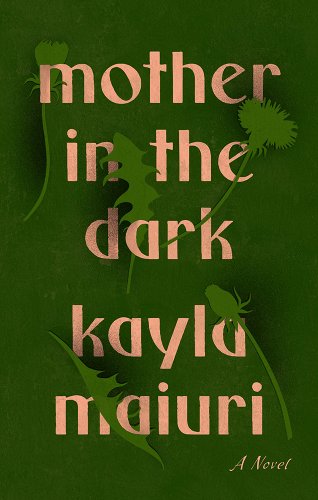For as long as I can remember, I’ve been fascinated by mother-daughter narratives in literature. At times, it bordered on obsession. I consumed anything and everything that promised to explore the distinctive and singular ways that mothers and daughters can hurt each other. It is the tug-and-pull nature that intrigues me most—the mother’s ability to simultaneously repulse and inspire, the daughter’s craving for both closeness and freedom.
In my debut novel Mother in the Dark, Anna is estranged from her family and living in New York when she receives a phone call from her sister. Knowing it is about their mother, guilt-ridden and consumed by grief, Anna doesn’t return the call. As she reflects on her childhood, she must confront the reality that despite the distance she’s put between them, she is more like her mother than she has allowed herself to believe—and she never left her past behind. In order to move on, Anna must break down the walls she built as a child to survive.
While writing my novel, I devoured stories about unraveling mothers and resentful daughters, negligent fathers, and siblings fending for themselves. Below are eight books that explore the ways mothers and daughters can love, wound, and haunt.
What We Lose by Zinzi Clemmons
In kaleidoscopic, fragmented prose, Clemmons tells the story of a young woman, Thandi, who must halt her life and a semester at college to care for her mother as she dies of cancer. It is a heartrending reflection on the dizzying process of grief—the slow pain of losing a mother before one’s eyes, and the ache of things left unsaid in a mother’s absence. “The pain was exponential,” Thandi writes, “because as much as I cried, she could not comfort me, and this fact only multiplied my pain.” What We Lose is a moving and thought-provoking account of suffering and the road to healing.
Mildred Pierce by James M. Cain
Set in Depression-era Glendale, California, Mildred Pierce follows a mother-daughter pairing fueled by competition and jealousy. Cain centers a single mother, Mildred, who loves in a well-intentioned but smothering way, “acting less like a mother than like a lover who had unexpectedly discovered an act of faithlessness, and avenged it,” and a reptilian daughter, Veda, who seems determined to break her mother’s spirits. The novel reveals the emotional manipulation that can exist amongst mothers and daughters, and the dangers of a parent stifling their own needs for their child’s. I’ve read many novels about mother-monsters; the monster-daughter is rarer. You will be haunted by Veda’s horrific acts long after you’ve finished.
The Deeper the Water the Uglier the Fish by Katya Apekina
Lost and reeling after their mother’s suicide attempt, Edith and Mae leave their Louisiana home to live with their estranged father in New York City. The Deeper the Water is a horrifyingly visceral portrayal of mental illness and inherited grief, and Apekina beautifully captures the complexity of siblinghood as Edith and Mae emerge from their shared childhood with entirely unique scars and perspectives.
Hotel Iris by Yoko Ogawa, translated by Stephen Snyder
Slim and thrilling, this novel is narrated by Mari, a 17-year-old girl who’s been forced to drop out of high school to work at her family’s rundown seaside hotel. Mari is lonely and starved of affection, overworked and tormented by a callous and demanding mother. One night, she witnesses a middle-aged hotel guest chastising a prostitute who’s been staying in his room. Marie is immediately drawn to the man’s commanding voice, and soon falls into a dangerous affair. Hotel Iris masterfully explores the violence and pleasure of intimacy, and how our relationship to our parents might affect the romantic relationships we seek.
August: Osage County by Tracy Letts
This heartrending play begins when the patriarch of an Oklahoman family vanishes in the night. His three adult daughters return home to care for their volatile mother as the details of his disappearance come to light. With hilarity and heart, Letts explores the complex dynamics of a family as they unite and unravel beneath one roof. August is a stunning portrait of shifting loyalties, and what it means to break free of one’s family.
A Girl Returned by Donatella Di Pietrantonio, translated by Ann Goldstein
Without warning, a 13-year-old girl is torn from the family she’s known all her life and sent to live with her “real” family. Abandoned first by her birth mother, and then by her adoptive mother, the unnamed protagonist fights through fear and alienation as she strives to find a place in her new world. Di Pietrantonio imbues this story with sadness but also resilience, all while skillfully capturing the weight of a mother’s absence.
Burnt Sugar by Avni Doshi
In cold, precise prose, Doshi explores a poisoned relationship between an aging mother, Antara, who is losing her memory and the adult daughter, Tara, who has been called to care for her. But Tara cannot forget her mother’s willful harm and neglect. “I would be lying if I said my mother’s misery has never given me pleasure,” the novel begins, “. . . And any pain she subsequently endured appeared to me to be a kind of redemption.” This is an evocative tale of betrayal and resentment, and one woman’s search for peace.
My Name Is Lucy Barton by Elizabeth Strout
Lucy is feverish and isolated in a hospital room as she recovers from a mysterious illness after surgery. Her husband is unable to visit due to his fear of hospitals, and she’s not seen her young girls in weeks. One afternoon, Lucy wakes to find her estranged mother at her bedside, who begins to comfort her with stories of her youth and hometown gossip. Much of the novel carries on this way, becoming a tender portrait of the inextricable bonds between mother and daughter as sharing stories allows them to heal.

